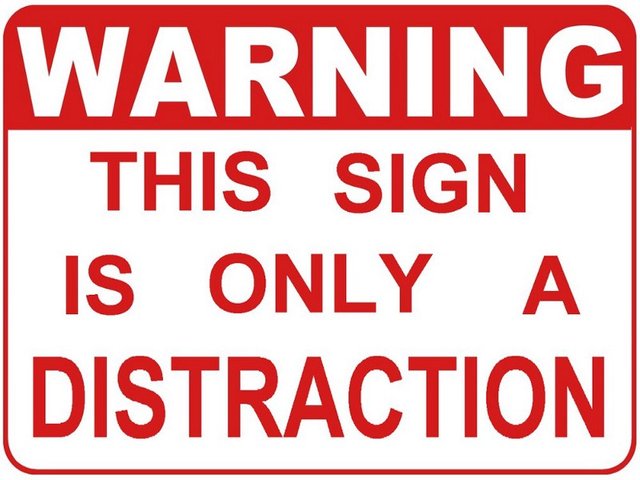Here are 7 reasons why it is so difficult to stay motivated.
Unfortunately, motivating ourselves is not as simple as rewarding ourselves for each achievement.

Let’s break down the science of motivation and discuss some tips on how to stay motivated.
Very successful people like Warren Buffett, Darren Hardy and Bro. Eli Soriano are so relentless in moving forward in their fields of specialization and they seem to have ‘unlimited’ motivation that can inspire others. Applying the lessons we can learn from them on a day-to-day basis is a whole different story though.
After listening to a life coach like @foxniner, I feel like I can do anything! -But after 2 days of “getting back to reality”, it’s back to the same story of reduced productivity and I need another “recharge”. Does it sound familiar? After all, more than half of new year’s resolutions go unfulfilled and almost go completely forgotten after a month. Gym parking lots are full in January and usually empty by February. I don’t know if many people notice that. -Might as well make a new promise every other day, right? So, here are the six possible reasons why It might be so difficult to...
1. The Distraction (Overwhelm) Effect
How can science help us achieve what we’re after? In an MIT study on motivation, students were given two different kinds of tasks. In the first part of the experiment, they had to hit two keys on a keyboard as many times as possible in four minutes. Those that did it the fastest received money. For some, the reward was $300 while others received only $30. Interestingly, the subjects performed much better, 95% faster in the high $300 group, compared to the $30 reward group.
In the second task, the same students were asked to solve a more complex math problem and this time, those offered the high reward performed 32% slower than the small reward group. This is called the distraction effect. A sensible analogy is when a deer crossing the road at night gets overwhelmed by headlights of a quickly approaching car and freezes in the middle of the road. Many roadkills are caused by this “overwhelm”. When we're given a task that requires problem-solving, it might cause emotional pressure and can cause the focus to shift to the motivator (the reward, like passing an exam) ultimately dividing your attention and reducing performance. The ‘headlights’ (rewards) shine so brightly that we stare at them or contemplate them without actually taking action or changing inadequate habits. In the case of the deer, all it has to do is walk on and get out of the way. -But it gets overwhelmed.
[A Crane and a Crane? -While 'playing' with the camera in a sunny morning]
2. The mindset that “Play” is unproductive
Let’s take a look at the inside the brains of individuals’ fMRI scans. They reveal that people who complete a challenge for fun and people who do it for a reward show similar activity throughout the brain. Let me give you a real-life example: When I take a photo of a bird, no matter how little it earns on Steemit, I never regret taking it and posting it. -It’s because of the fun doing it, not because it earns Steem. That means I get another form of reward which is deeper, more internal than money. If you think you’re like “Playing” while working, that actually makes things easier and you become more productive. "All work, no play" doesn't sound motivating, does it?
3. Decreasing/removing rewards will kill yah (your motivation)!
Interestingly, if those offered a reward the first time are asked to participate again in the same activity for no reward, there’s a decrease in activity in the anterior striatum and prefrontal areas of the brain (parts linked to self-motivation). So, it seems that rewards may cancel out our natural “sense of play”. Here’s a real-life example: Your first posts got many votes and earned almost a hundred dollars. Then, the succeeding posts didn’t, changing your expectations from high, immediate rewards to “low/no reward". I have seen other new authors (including myself) in that situation and what I noticed was the decrease in quality of the posts. It makes me think it’s better to earn with relatively low rewards in the first posts, then gradually move up from there, if only we had more control over our earnings. This partly explains why many authors go inactive or “give up” after having written their "killer posts". The decrease in rewards for the same activity (writing) decreases brain activity. Those who post entirely for fun (regardless of how much they earn) are here to stay. Think about Facebook!
4. Picking the wrong activity
The above picture is my uncle's treadmill. I remember walking on it everyday for ten minutes. It was the most boring exercise for me! I didn't last more than a week on the same routine. -That's also because I was doing it just for the sake of losing weight. It's not fun at all, even if I listen to the radio while doing it. You might burn a lot of calories on a treadmill but not if you stop doing it after three days! In a study where they surveyed respondents for reasons why they exercise, they found that those focused on weight loss spent 32% less time exercising than those who said they want to feel better in their day-to-day life. In other words, pick an enjoyable activity that supports achieving your goals!
5. Underlying health problems
Too bad, exercising didn't make me feel better during that time, probably because I had undiagnosed high blood pressure and mild obstructive sleep apnea. Nowadays, not being able to take a walk outside for days bores me even more. -It's the opposite, especially that I'm now under treatment for those two conditions. With a slightly high blood sugar from a previous checkup, I continue injecting minor changes in my diet in order to keep my health in check. High blood sugar also causes fatigue and make one feel less-motivated and unproductive.
[Coffee with oatmeal and peanut butter: A filling drink for snacks]
6. Optimism may not always be the best strategy.
There’s a study where 210 females trying to quit smoking participated and shared their thoughts. Those who only imagined major success with very few minor obstacles were less likely to reduce cigarette consumption. The main reason is: Positive thoughts can somehow trick your brain into thinking that you have already achieved the goal, giving you hits of dopamine, a sense of reward, and reducing motivation. That means, if skydiving is on your bucket list, watching jumpers on TV won’t necessarily motivate you to actually save up for the activity and go for it. Simulating the activity on a screen (or even in your brain) can make reality (the actual activity) seem relatively less-rewarding (having received simulated/fake rewards), reducing your chances of success.
On the other hand, this doesn't mean negative thoughts are good either. Thinking negatively may lead you to give up too early or to not even try an activity. Thinking through the obstacles that stand in your way seems to be the best mixed-approach. This is called “mental contrasting”. For example, instead of contemplating what it would feel like to have 10,000 Steem Power in your account, or what it would feel like to drive the new SUV you’ve always wanted, think about going through each obstacle you might encounter along the way. For example, if you can’t find time to work on your next post, first, think about the little things that hold you back and see yourself overcoming them. This reduces the “overwhelm” effect which I mentioned above and helps you better plan on how to achieve your goal, one step at a time.
7. The “What the hell!” effect.
This behavior was first addressed when researchers gave dieters varying sizes of milkshakes from small to large. They offered them ice cream afterward and it turns out those who had large milkshakes also ended up eating more ice cream because: “What the hell! I’ve already ruined my diet. -Might as well go all-out.” Anticipating that you will have some setbacks along the road to success, whether it be to quit smoking or work aspirations or a fitness goal, will make it easier for you to forgive yourself for your mistakes and go back on track as soon as you notice you’re running off-course. This will bring you closer to achieving your goals.
References:
The Science of Motivation (Youtube Video)
Surprising Reasons Why Office Jobs Can be Boring
Please stay tuned for some other tips for motivation with short-term goals (like that report that’s due next week).
All images are my original work except ones with the source cited.
Thanks for reading/viewing!
[Credits to the Author of Life]
Please consider casting your votes for the following witnesses: @curie, @surpassinggoogle, @steemgigs, @precise, @cloh76.witness, @ausbitbank, @teamsteem, @gmuxx, @hiroyamagishi, @elizahfhaye, @bayanihan, @papa-pepper, @steemph, @daveks, @jerrybanfield, @teardrops, @donkeypong, @davidpakman, @minnowsupport, @themarkymark, @blocktrades and @sndbox who have been adding invaluable contribution to the community.
To cast your votes, just go to
https://steemit.com/~witnesses



All images are my original work except ones with the source cited.
Please stay tuned for my favorite photos and the lessons I learned behind the scenes.

I was summoned by @nicecooking. I have done their bidding and now I will vanish...
A portion of the proceeds from your bid was used in support of youarehope and tarc.
Abuse Policy
Rules
How to use Sneaky Ninja
How it works
Victim of grumpycat?
Downvoting a post can decrease pending rewards and make it less visible. Common reasons:
Submit